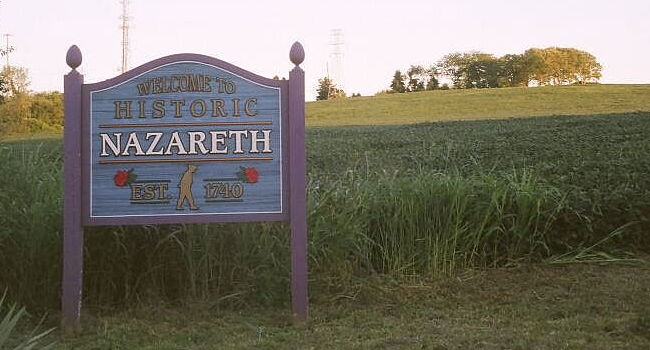The year is 2001; I’m over on Penn Street in Bath with Mr. George Maureka, a former Penn Dixie employee, who is sharing his memories of the Great Depression. His son, also named George, was an outstanding student of this writer at Northampton High School.
The family resided in a company home. The home had running water but they needed the kitchen stove to heat the water. The only heat was provided by a kitchen stove, which was located in what is the present basement of the home.
Mr. Maureka recalled, “After school we chopped wood for our winter supply. In the winter we sat around the stove until bedtime and then ran up the stairs and covered with a feather tick. In the morning we rushed down to warm up next to the stove.”
He pointed to the back yard and said, “It was dug up by hand and converted into a beautiful garden. My father was always gardening, raising potatoes, cabbage, celery, beans and everything you could imagine. We had a stable for rabbits and pigs. Our neighbor Mike Shimoskie helped do the butchering. There was plenty of canning and food to eat.”
His mother had all the work she could handle. Clothing was washed in a tin tub until they could afford to purchase a washing machine to ease her workload. Penn Dixie clothe bags were washed and dyed by the women and were used as dish towels, bed sheets, tablecloths and clothing. If you needed a swimming suit, your mother would make one out of a cement bag so you could swim in a vacant cement quarry. It was the fashion of the day. I asked George about Christmas. He replied, “You were happy with a good Christmas supper.”
George started working at the age of 15 for Kenny Eickhoff, a Bath plumber, where he would learn the plumbing trade. “I was paid eight dollars a week. We had plenty of work and everyone knew him and liked him.”
The Maurekas were hard working people and rarely left Penn Street. So what did they do for entertainment? One day a modern marvel was brought to their home, an Atwater Kent radio, how the sound of the world was in their home. Every night the family would gather around the radio to listen to their favorite programs.
Unfortunately, only our older readers will remember these popular shows: Amos & Andy, The Lone Ranger, The Shadow, Gang Busters, Sammy Kaye, The Green Hornet and Gabriel Heatter and Lowell Thomas broadcasted the news.
George listened to the New York Giants baseball games and sat on the floor enjoying the games. Mel Ott was his favorite Giant. Then there were those heavyweight title fights with Joe Louis, the “Brown Bomber.”
He said, “I can still hear Clyde McCoy on the trumpet playing ‘Sugar Blues.’ It felt like Clyde was sitting next to me in the living room.”
To Mr. Maureka, radio remained a life-long memory. Radio today is still a popular media news, music and talk show outlet, but to American families, especially during the dark days of the Depression, radio was more than entertainment, it was a family adventure.
In two weeks we will be paid “big money,” $1.30 an hour.








